
Mar 24 2021.
views 413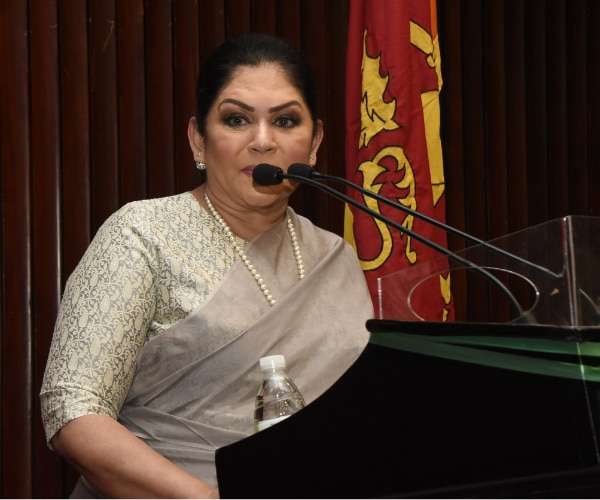
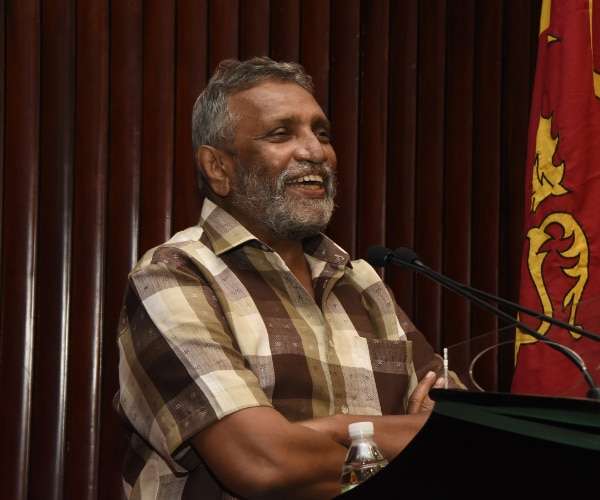
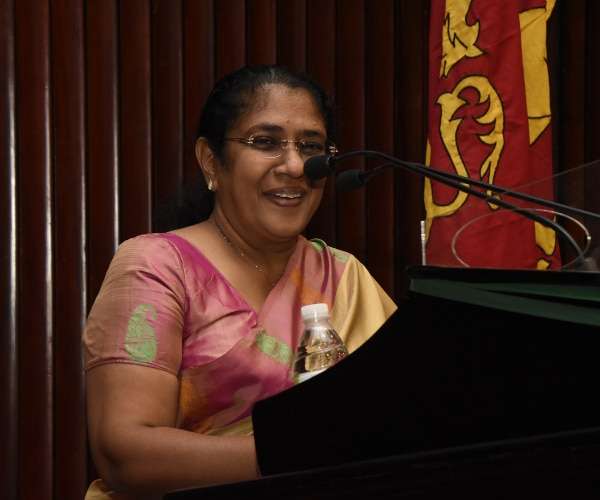
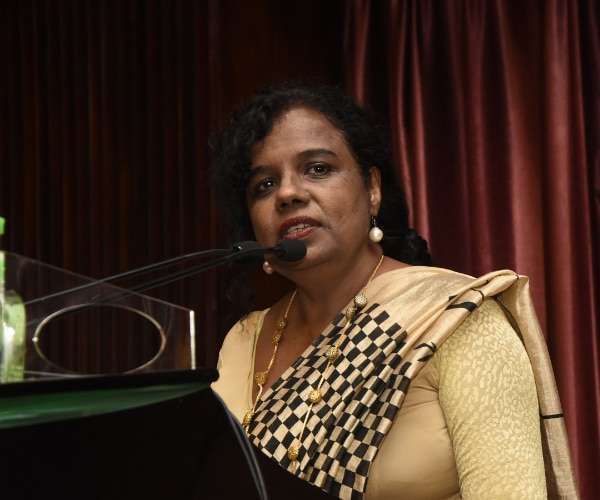
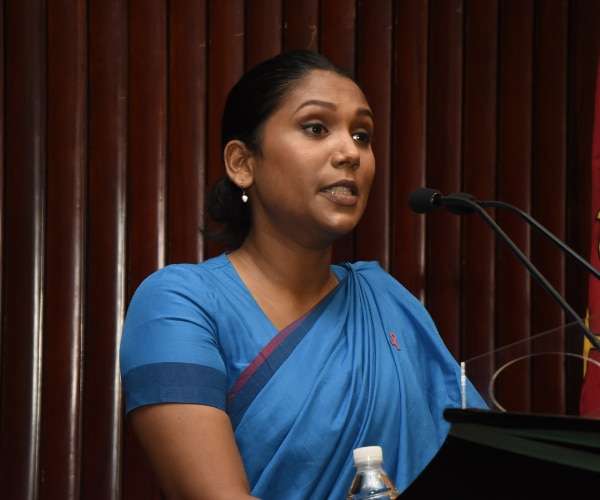
Yeheliya Foundation’s signature project ‘Diyawanna Tharanaya’ (translation: ‘Crossing Diyawannawa) concluded on a successful note with the launch of the project’s Outcome Document on the 13th of March 2021 at the BMICH in the presence of distinguished guests, members of the parliament, civil activists and representatives of interested organizations.
The project Diyawanna Tharanaya was an open dialogue by the Yeheliya Foundation that operated on a three-stage discussion that actively engaged with youth civic rights activists, civil society organizations and women in governance on investigating and cataloguing the barriers and gaps that curtails the sustainable participation of women in politics and governance.
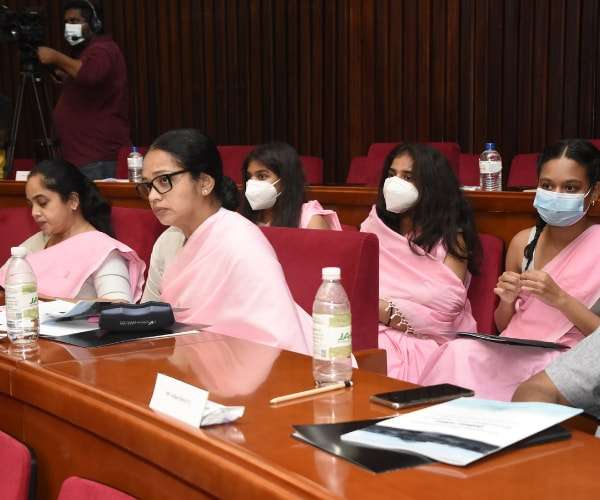
The Outcome Document that launched at the event was an initiative by the Yeheliya Foundation to catalogue and concise onto one single document the findings and viable recommendations and solutions that can be used as a guiding tool to form an action plan to change the course of the political culture in Sri Lanka. “Even though women make up over 50% of the population, only 12 women are in governance today to represent us. The UN reports that should the status quo continue like this, gender equality will not be achieved for another 100 years and gender parity would not be possible until 2075,” shared Naushalya Rajapaksha, Founder - Yeheliya Foundation, during her welcome speech at the launch. “Diyawanna Tharanya was launched not just to investigate the issues surrounding the lack of female representation but also to offer feasible solutions to the problems at hand along with our
vision for 2025.”
The Outcome Document highlighted key recommendations for increasing female participation in governance. One such recommendation is to remove the existing invisible barriers of the political system itself by lobbying with key political parties to increase female nominations ensuring that each political party presents a set number of female candidates, setting out transparent criteria or point system for the acceptation and rejection of nominations, setting out a higher and more strict quota system for women in the Parliament including generating a conscious thought process among the public to dedicate 1/3 rd of their vote for a woman in order to better facilitate more seats and nominations for women parliamentarians.
An equally pressing and much-needed recommendation also called for active participation from the Government to take on the burden of facilitating gender balance in politics. These include better laws regarding election-related harassment and passing the Election Campaign Finance Act for a level playing field for all election nominees in
campaigning as well as the need for inclusive infrastructure accommodation, access to gender-disaggregated data, special training and actively educating and encouraging the girl child and potential candidates to enter politics.
Furthermore, the Outcome Document highlighted the crucial need for media sensitivity and media ethics and guidelines in order for all politicians to be propagated in a non-discriminatory, unbiased and sophisticated aura where women candidates and politicians are given equal airtime and press as well as involving women politicians on debates concerning a wide variety of subjects such as economics, finance, tourism among others, that goes beyond what is considered as ‘women related issues’. The launch of the Outcome Document saw participation from a number of youth activists and representatives from civil organizations as well as community leaders and
members of the Parliament and other high ranking public and private officers involved in
governance.
Speaking on the launch of the Outcome Document and the work done by the Yeheliya Foundation, here are some notable comments from key speakers at the Launch. “This is a very praiseworthy objective by the Yeheliya Foundation. Even though we produced the first woman Prime Minister in the world and I was the first woman Executive President in the country, there continues to be a glass ceiling for women to come into politics. It’s excellent that there is now a mandatory quota for women in the Parliament but I believe that a quota of 40-50% for women politicians would be what’s fairer and more equal”- Former President Madam Chandrika Bandaranaike Kumaratunga.
“When I was engaging in the open dialogue with the Yeheliya Foundation, we spoke about the role of women candidates and politicians in the media. Why does the media treat women like toys? Why are women the only ones talking about women’s issues? Is that all a woman politician should talk about? As a senior member of the Parliament and the first female Justice Minister of Sri Lanka, I’ve personally seen and witnessed the struggle for a woman to come into Parliament so the important question now is how we can cross these barriers and challenges? The Outcome Document by Yeheliya is a good step forward.” – MP Hon. Thalatha Atukorale.
“In politics, there is a constant double standard placed on women. It just so happens that a lot of people don’t see the need to have women such as yourself involved in governance. We have a very strong women’s movement going on that has been building for years and I strongly believe that there should be the formation of a women’s party in order for there to be more progressive development on female representation in politics.” – Rosi Senanayaka, Mayoress of Colombo.
“One of the biggest issues women face in announcing their candidacy is the finance that is involved with it. To put your face on a poster, to run an ad in a newspaper or to tour the country on a campaign is very costly and there is a huge disparity between those who can and those who can’t. One of the recommendations from the Yeheliya Foundation on this Outcome Document is to pass the Election Campaign Finance Act in order to bridge this gap and I think that’s commendable work.” – Dr Ajantha Perera, Former Presidential Candidate.
“It is the small things that play a big role in the lack of female representation in politics. Even if you have a group with 25 girls and 3 boys – society is constructed in such a way that despite women being the majority in the group, its more likely that one of the boys would be appointed the leader! Why is that? Until we can strongly say that our women have the same rights and the same opportunities, we should not stop” – Mr Mahinda Deshapriya, Former Chairman of the Election Commission.
“It’s important to realize that gender has intersectionality which deprives women much further and that women go through experiences that we can’t even imagine. The recommendations by the Yeheliya Foundation are impressive and welcome and has to be done. We all look forward to being represented by you!” – Ms Lasanthi Daskon,
Deputy Country Director International Foundation for Electoral Systems.
Pictures by Nimalsiri Edirisinghe
0 Comments